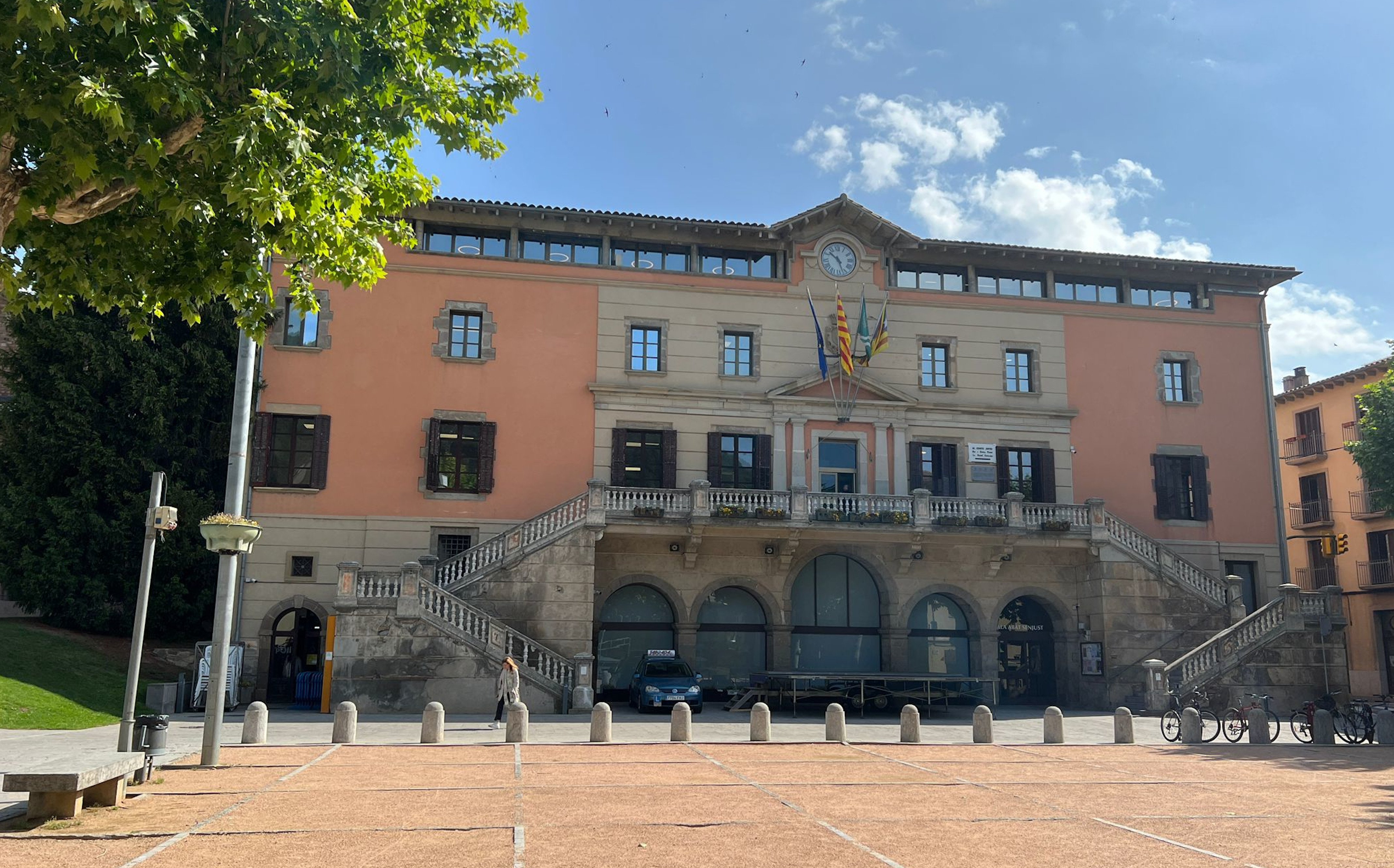The last 48 hours have been convulsive for Together for Catalonia (Junts) due to uncertainty over the party's response to the post-electoral situation in the town of Ripoll, where the far-right Aliança Catalana (Catalan Alliance) finished as a clear winner in the May 28th local elections. In response to the call for a cordon sanitaire among all other parties to block the anti-immigrant party from power, the president of Junts, Laura Borràs, affirmed on Sunday night that she was not "in favour" of such an agreement, arguing that "as a general rule" she is inclined to respect the electoral list with the most votes. These statements led to rebukes from the two other pro-independence parties, ERC and the CUP, and, after a Junts executive meeting this Monday, spokesperson Míriam Nogueras asserted that the party was firmly in support of the necessary four-way agreement that would prevent Aliança Catalana's Sílvia Orriols from becoming new mayor of the Pyrenean town: "The position of Junts is unquestionable: we have always asserted a cordon sanitaire against the far right and this has been ratified by the executive".
However, these statements caused discomfort among the Junts party's local executive in Ripoll, who defend their autonomy to decide on a possible pact against the extreme right group. In fact, this Monday evening, they claimed that there was no firm agreement with ERC, the PSC and the CUP. A planned meeting this very evening with these three parties to discuss details of the agreement was suspended, at the request of Junts - as reported by Nació and confirmed by this newspaper. Instead, new meetings will take place at internal party level to assess what to do.
In an interview with Catalunya Ràdio, the new speaker of the Catalan Parliament, Anna Erra (Junts), alluded to this issue and defended the "municipal autonomy" of the party in Ripoll to adopt this decision. However, she was quick to assert that Junts has always put a "red line" on hate speech and extreme right-wing parties, asserting that "no one wants parties that promote hatred" in order to win. Meanwhile, after the controversy generated by Laura Borràs's statements, she elaborated later on Sunday, explaining that perhaps letting the Aliança Catalana govern for a while "might prompt a motion of no-confidence after everyone gets to see their true face, and can see whether or not they know how to govern, so that then they could be removed from power without turning them into victims and making the party grow." At the same time, she gave Badalona as an example, where Xavier García Albiol (People's Party) swept the last elections, winning 18 councillors out of the 27 seats. In previous elections, Albiol had campaigned on a controversial policy of "cleaning up" Badalona.
The results in Ripoll
In Ripoll, the election night result on May 28th was a clear victory to Aliança Catalana, which obtained 30.8% of the votes and 6 councillors out of the 17 council seats. The anti-immigration policies proposed by Sílvia Orriols found support in a town whose social co-existence has been tensed since the 2017 Barcelona and Cambrils terror attacks, carried out by youths from Ripoll, whose families were from North Africa - a complex reality which, according to some residents, has not been fully addressed. On May 28th, Aliança Catalana took six seats with the other eleven going to Junts (3), ERC (3), PSC (2), CUP (2) and Independents of Ripoll (1). A few days ago, ERC, the PSC and the CUP announced an agreement in principle to prevent Orriols from being mayor, but their total falls two votes short of an absolute majority, so they need the cooperation of Junts to be able to impose the proposed blockade of the far-right party.

